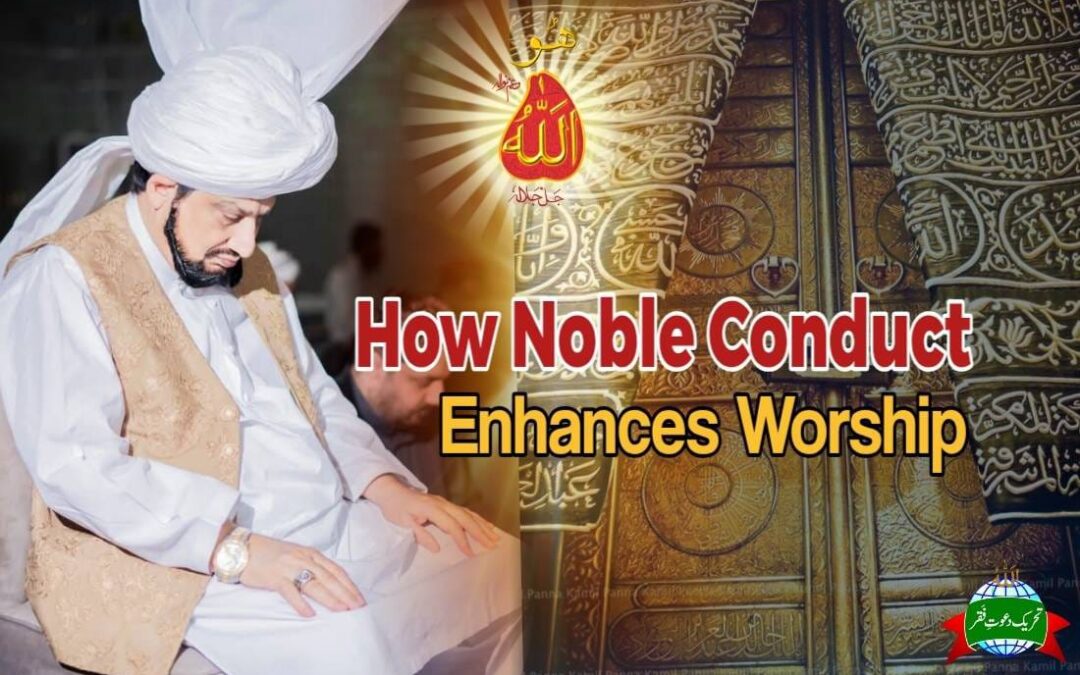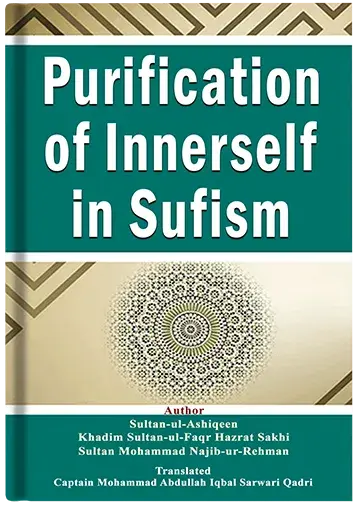How Noble Conduct Enhances Worship
Summary:
Why Good Character Is the Soul of Worship
Have you ever wondered why some people pray, fast, and perform every act of worship — yet still speak harshly, lie, or mistreat others?
Why is it that despite outward religiosity, their actions carry no warmth, no softness, no mercy?
This article invites you to explore a deeper truth: worship without noble character is incomplete.
Islam doesn’t just ask us to bow and recite — it asks us to transform from within. Through Qur’anic verses, Hadith, and insights from scholars and saints, this article unpacks the real purpose of worship: purification of the inward (tazkiyah al-nafs).
You’ll discover:
- How prayer is meant to soften the heart, not just move the body
- How fasting is more than hunger — it’s about silencing the ego
- Why the Prophet said that the best among us are those with the best manners, not the most rituals
- How character flaws like pride, jealousy, and harshness reveal a deeper illness — one that even worship can’t mask if the soul remains unpurified
The article also explains the spiritual science of tazkiyah, and how virtues like patience, humility, honesty, and compassion grow only when the inner self is cleansed.
But this journey isn’t one we can walk alone. Just as we need doctors for physical health, we need a spiritual guide (Murshid Kamil Akmal) to navigate the subtle diseases of the soul. You’ll read how the companionship of a sincere guide brings not only wisdom but light — helping seekers align their outer worship with true inner change.
So if you’ve ever felt like your worship is routine, your heart heavy, or your tongue unguarded — this article is for you.
It doesn’t preach. It reflects.
It doesn’t just teach. It invites.
Read on — and rediscover how real faith is not just about prayer mats, but purified hearts.
Let this piece be your first step toward not just doing worship — but becoming worship through character, sincerity, and spiritual truth.
How Noble Conduct Enhances Worship
Islam is a complete way of life that guides humanity in every aspect. Its foundation rests on two core elements: worship and character.
Worship and Character
Worship in Islam means submission, humility, and obedience to Allah. It is not limited to a few rituals like prayer, fasting, pilgrimage, or zakat. In fact, any act done solely for the pleasure of Allah falls under the category of worship.
While worship connects a person to Allah, good character builds a bond between human beings. These two are deeply interlinked and incomplete without each other. The Qur’an and Hadith make it clear that the true purpose of worship is to refine a person’s character. Without good ethics, worship becomes a mere ritual or a show without spiritual substance.
Prayer and Morality
Allah says in Surah Al-Ankabut (29:45):
“Surely, prayer keeps one away from indecency and evil deeds.”
This verse clearly proves that the purpose of prayer is not limited to physical movements. Rather, it is meant to protect a person from immoral behavior and bad deeds. Worship is not just a set of external rituals. It is a way to draw closer to Allah, purify the soul, and shape a person’s moral character.
Fasting and God-Consciousness
Allah says in Surah Al-Baqarah (183)
“O believers! Fasting is prescribed for you as it was for those before you, so that you may become mindful of Allah.”
Becoming God-conscious means avoiding anything that displeases Allah. Fasting is not just about enduring hunger — it is a practice of self-restraint, patience, and guarding one’s speech and actions.
The Prophet said:
“Fasting is not just refraining from food and drink, but also avoiding vain and indecent speech.”
(Mustadrak al-Hakim, 1570)
He also said:
“Many people fast and gain nothing but hunger and thirst, and many stand in prayer and gain only sleeplessness.”
(Musnad Ahmad ibn Hanbal, 8843)
Fasting trains the soul. It protects against anger, lies, foul language, and inappropriate behavior. It is a powerful tool for moral purification and self-discipline.
The Conduct of the Companions
The noble Companions of the Prophet were known not only for their worship but also for their exceptional moral character.
Caliph Umar ibn al-Khattab once said:
“If you see someone deeply engaged in worship, observe their character, honesty, dealings, and truthfulness as well. Religion is not limited to worship alone.”
In the Qur’an, Allah praises the character of the Prophet in these words:
Surah Al-Qalam 68:4
“And verily, you (O Prophet!) possess an excellent character.”
This means the Prophet was adorned with the etiquettes of the Qur’an and blessed with divine ethics.
Aisha (RA) said:
“His character was the Qur’an itself.”
(Sunan Abu Dawood, 1342)
The Prophet also said:
“I was sent to perfect noble character.”
(Muwatta Imam Malik, 1616)
The Futility of Worship Without Good Character
If someone is engaged in worship yet still indulges in indecency, foul language, cruelty, or bad behavior, it means their worship lacks soul and purpose.
The Prophet said:
“If a person does not give up lying and deceit while fasting, Allah has no need for them to abstain from food and drink.”
(Sahih Bukhari, 1903)
In another narration, he said:
“Many people fast but gain nothing from it except hunger, and many stand in prayer but gain only fatigue.”
(Mustadrak al-Hakim, 1571)
This clearly shows that the purpose of worship is not just external action, but inner transformation and moral refinement.
If someone continues to lie, show arrogance, harshness, or commit injustice while praying or fasting, they are simply performing rituals without heart. Such worship is like a body without a soul—visible, but ineffective.
Worship becomes meaningful only when it is paired with good character.
Who Is the Best Believer?
The Prophet said:
“The most complete in faith among the believers is the one with the best character.”
(Tirmidhi, 2612)
Sayings of the Saints and Scholars
Imam Ali said:
“The true worshipper is not the one who performs excessive worship, but the one who improves his character.”
Hasan al-Basri said:
“If your prayer does not keep you away from sin, it is not prayer — it is just hard labor.”
Sheikh Saadi said:
“If worship does not cleanse your character, then it is nothing but hypocrisy.”
Worship and character are two branches of the same tree. Acts of worship like prayer, fasting, zakat, and Hajj are not meant just to earn Allah’s pleasure. They are also meant to improve one’s conduct, speech, dealings, and behavior.
If a devout person prays regularly but is still rude, foul-mouthed, or treats others poorly, then the impact of their worship is not reflected in their character.
A true believer is one who combines worship with noble character.
Good Character Is the Highest Form of Worship
Some people limit religion to outward acts of worship — prayer, fasting, zakat, and Hajj — while neglecting ethics, dealings, and the rights of others.
However, the Qur’an and Hadith clearly show that worship is only complete and accepted when it leads to better character and conduct.
Certain behaviors signal a disconnect between worship and ethics:
- Performing many prayers or fasts, yet still lying or using foul language
- Appearing pious but engaging in deceit, betrayal, or breaking promises
- Causing harm to others through one’s behavior, yet still considering oneself righteous
Such contradictions reveal that the true spirit of worship is missing. Without moral integrity, religious acts lose their essence.
Condemnation in the Qur’an and Hadith
In Surah Al-Ma’un, Allah strongly condemns those who pray yet neglect the rights of others.
Surah Al-Ma’un (107:2–5):
“This is the one who repulses the orphan, and does not urge the feeding of the poor. So woe to those who pray, but are heedless of their prayers.”
(Irfan-ul-Qur’an Translation)
This verse shows that true worship must be paired with social responsibility. The Prophet (ﷺ) also said:
“Nothing weighs heavier on the scale than good character.”
(Jami Tirmidhi, 2003)
In another hadith, he said:
“The best among you are those with the best character.”
(Sahih Bukhari, 6029)
Without good character, worship cannot reach acceptance. Islam does not only connect a person with Allah but also makes them responsible for the rights of others. The goal of worship is to transform a person into a better human being.
True worship softens the heart, teaches truthfulness, and restrains the hand from injustice. Religion is the name of beautiful conduct. If our prayers and fasts do not keep us away from lies, arrogance, cruelty, or envy, we must reflect deeply on their moral impact.
Character is the mirror that reflects the light of worship. Focusing only on rituals while ignoring ethics and behavior is a narrow understanding of religion. Worship, along with good character, dealings, and fulfilling the rights of others, is what completes a believer’s spiritual journey.
Purgation of the Inward: The Root of Good Character
Character is the brightest aspect of a person’s personality and the true beauty of any society. A well-mannered, patient, and kind individual wins hearts with ease. On the other hand, a foul-mouthed and ill-tempered person—no matter how knowledgeable, pious, or wealthy—pushes people away.
But this raises an important question: Where does good character truly begin, and how can one develop it?
The clear answer is: Without purification of the inward (tazkiyah al-nafs), true moral excellence is not possible.
So, what is tazkiyah al-nafs?
What Is Tazkiyah al-Nafs (Purification of the Inward)?
The word tazkiyah means purity or purification. Tazkiyah al-nafs refers to cleansing the inner from destructive traits like jealousy, pride, hatred, lust, anger, greed, and miserliness. In its place, the soul is adorned with virtues such as patience, gratitude, humility, forgiveness, justice, and gentleness.
Just as the strength of a tree’s branches and fruits depends on the health of its roots, good character depends on the condition of the heart and soul. If the soul is diseased, then moral behavior becomes artificial. But when the soul is pure, noble character flows naturally into one’s actions.
The Prophet said:
“Indeed, there is a piece of flesh in the body — if it is sound, the whole body is sound; and if it is corrupt, the whole body is corrupt. Know that it is the heart.”
(Sahih Bukhari :52)
Without tazkiyah, good behavior is nothing more than a performance. And Allah does not accept such hollow worship.
According to a narration from Abu Huraira, the Prophet said:
“Whoever learns eloquent speech or clever language to impress people and win hearts — Allah will not accept any of his obligatory or voluntary deeds on the Day of Judgment.”
(Sunan Abu Dawood, 5006)
This Hadith emphasizes that purity of intention and sincerity of the soul are essential. Worship, character, and speech must all stem from a purified heart — not from a desire to impress others.
The Difference Between True Morality and Superficial Politeness
In today’s world, many people see good manners as a social tactic — a form of diplomacy, business strategy, or temporary convenience. Their politeness lasts only as long as their interests are not challenged. But when personal gain is at risk, their true nature is revealed.
This is the key difference between character born from inner purification and behavior shaped by worldly agendas.
A person who is truly pure at heart avoids harsh speech and disgraceful actions — not just in public, but also behind others’ backs. Their respect is not selective or performative; it flows naturally from sincerity.
Such character does not change with situations. It is rooted in tazkiyah al-nafs, the deep inner cleansing that molds the heart and, in turn, shapes consistent, respectful behavior.
Success Through Inner Purification — In the Light of Qur’an and Sunnah
Allah says in Surah Ash-Shams (91:9–10):
“Indeed, successful is the one who purifies his soul, and ruined is the one who corrupts it.”
This verse makes it clear: true success lies in cleansing the soul from inner sins like pride, jealousy, and greed. The one who neglects this inner cleansing falls into spiritual failure — even if they outwardly perform religious acts.
The Prophet said:
“A true Muslim is the one from whose tongue and hands others are safe.”
(Sahih Bukhari :10)
This level of moral safety can only be achieved when a person learns to control both their speech and behavior — in other words, when they train their soul. Without tazkiyah (inner purification), moral discipline is impossible.
The Connection Between Worship and Purification
The true goal of worship is to purify the inward. If someone offers prayers, fasts, or recites the Qur’an — yet still speaks harshly, holds grudges, or has a hardened heart — it is a sign that the spirit of worship, which is tazkiyah, has not been achieved.
Ibn al-Qayyim writes:
“Worship is not limited to bowing and prostration; it includes softness of the heart, purity of speech, and cleansing of the soul.”
Moral excellence does not come merely from religious knowledge, rituals, or philosophy. It comes from within — from a purified heart and disciplined soul.
Tazkiyah al-nafs is like fertile soil. When the seeds of character are sown in it, they grow, flourish, and bear fruit. Good manners are not just skills to be learned; they are inner states born from spiritual cleansing.
When a person purifies their heart, corrects their intentions, and controls their desires, only then do their manners become a source of peace and comfort for others.
Moral Decay Without Purification of the Soul
The inward is the very force that urges a person toward good or evil. When it becomes enslaved by desires, jealousy, anger, selfishness, and greed, then truth turns into falsehood, justice into oppression, and patience into rage.
In such a state, no moral virtue can survive — no matter how outwardly strong one’s worship may appear.
This is why without tazkiyah al-nafs, noble character begins to collapse. A person may pray, fast, or recite scripture, but if the heart is impure and the soul is undisciplined, worship becomes a hollow ritual.
Today, we must turn our attention not only toward rituals but toward inner purification as well. Only through tazkiyah can we become not just closer to Allah, but also a source of peace, mercy, and safety for others.
Tazkiyah al-Nafs and the Perfect Spiritual Guide (Murshid Kamil Akmal)
The path to purifying the soul and attaining closeness to Allah is delicate, complex, and filled with spiritual challenges. When a person attempts this journey alone, they are at risk of confusion or misguidance.
A Murshid Kamil Akmal — a perfected spiritual guide — serves as a lamp in the darkness, illuminating the way with wisdom and Ddivine insight. Just as a doctor diagnoses physical illnesses, the spiritual guide identifies and treats inner diseases — such as vanity, pride, jealousy, greed, and hypocrisy.
The nafs is subtle in its deception. Its tricks can be nearly invisible — and only a Murshid Kamil has the spiritual insight to expose them. Such a guide’s heart is a mirror to Ddivine light, a center of Allah’s manifestations. By remaining connected to the guide and keeping company with them, the disciple receives spiritual light (noor) and inner awakening.
Sultan Mouhammad Najib-ur-Rehman says:
“There is no limit to the blessings (faiz) of a Murshid Kamil Akmal. A true seeker receives spiritual benefit no matter where they are.”

In today’s chaotic and spiritually barren world, the journey of tazkiyah is more urgent than ever. Let us seek the company of Sultan-ul-Ashiqeen, Hazrat Sakhi Sultan Mouhammad Najib-ur-Rehman, whose companionship offers a path to inner purification and divine closeness.
Note:
This is an English translation of Urdu blog اخلاقِ حسنہ اور عابادت کا تعلقthat appeared in the July 2025 issue of monthly Sultan-ul-Faqr Magazine. Mrs. Faqiha Sabir Sarwari Qadri authored the original article. Zuhaa Fatima Sarwari Qadri has translated it in English.
Questions
- What is the significance of noble character in Islam?
- Why is akhlaq (morality) essential for true spirituality?





